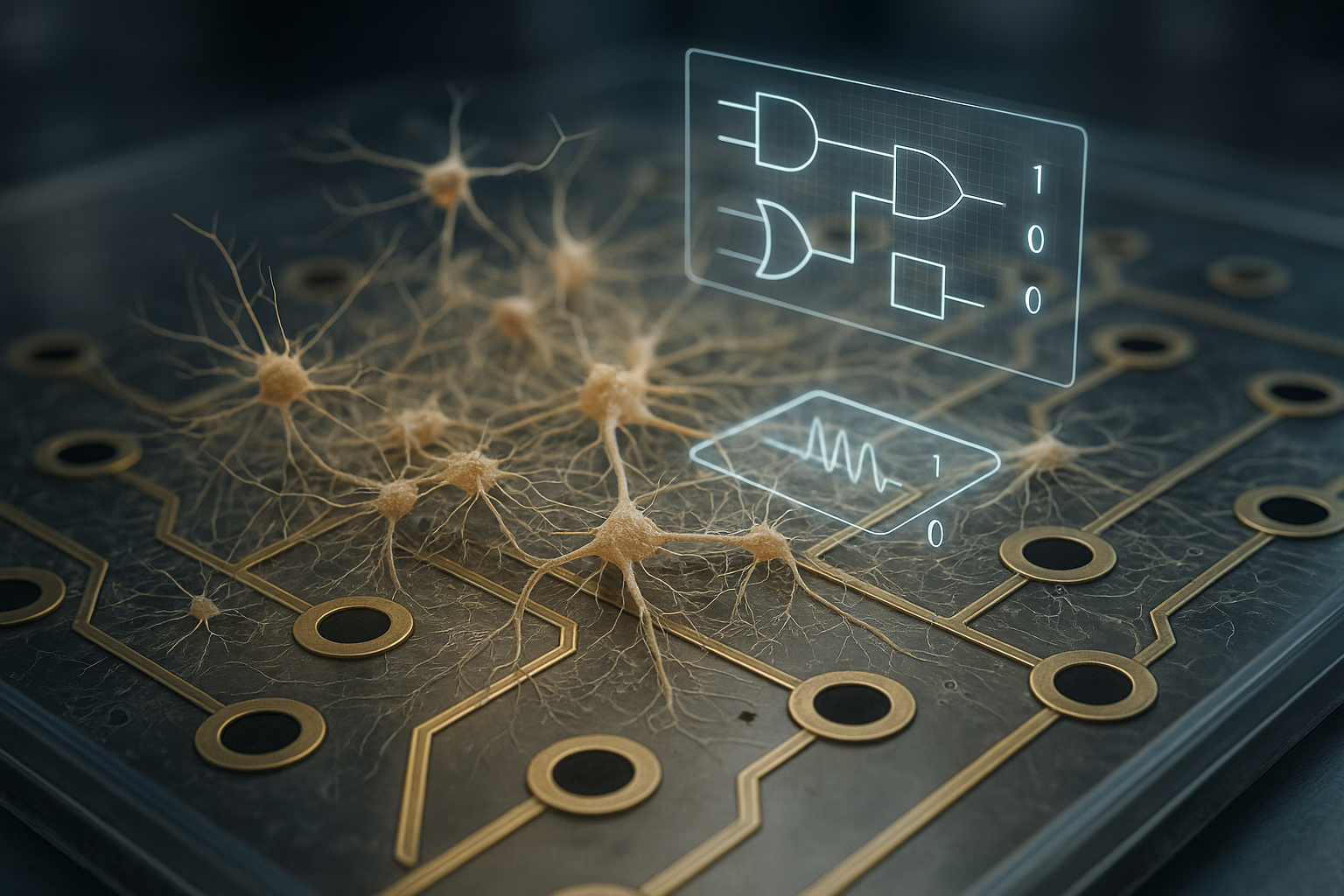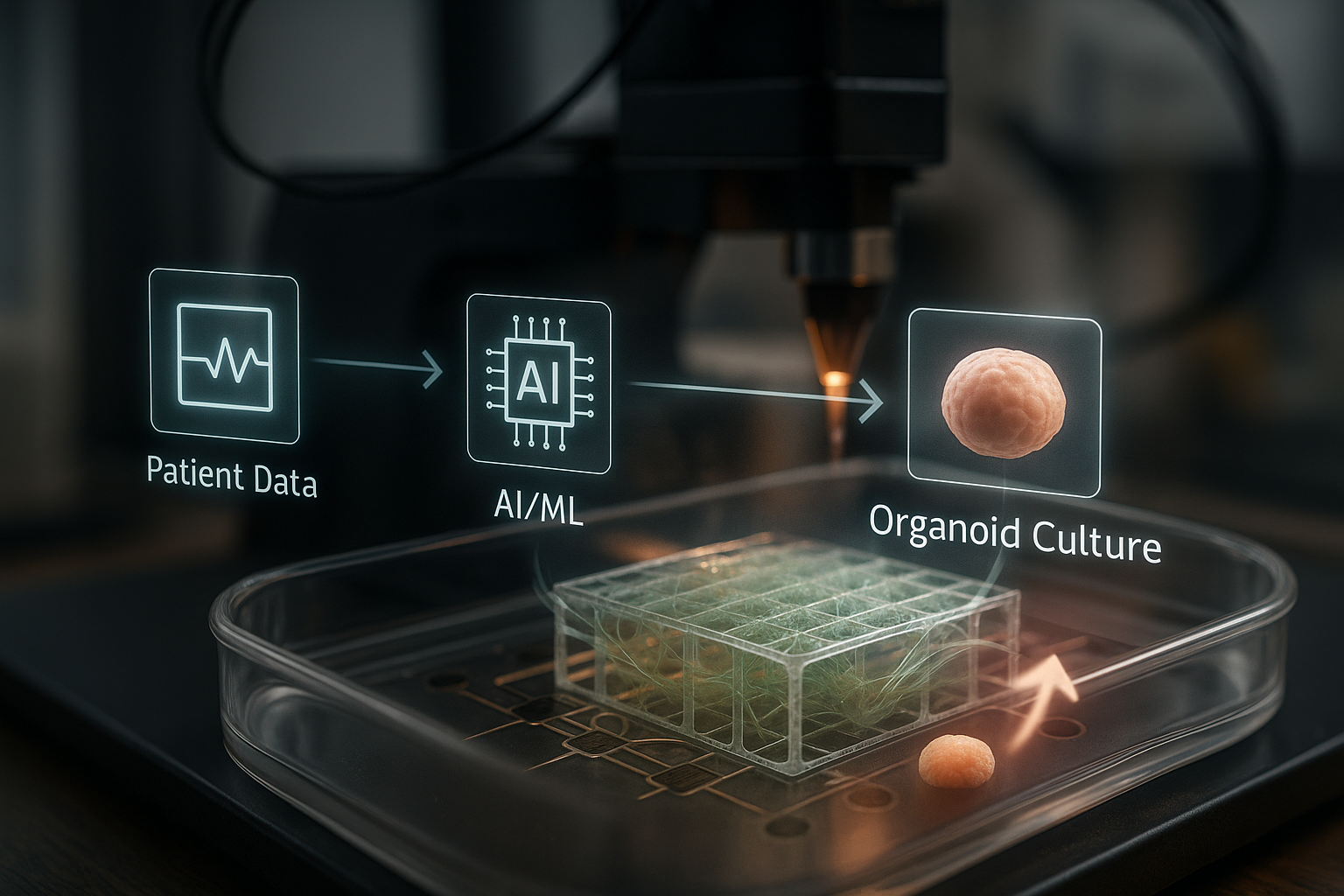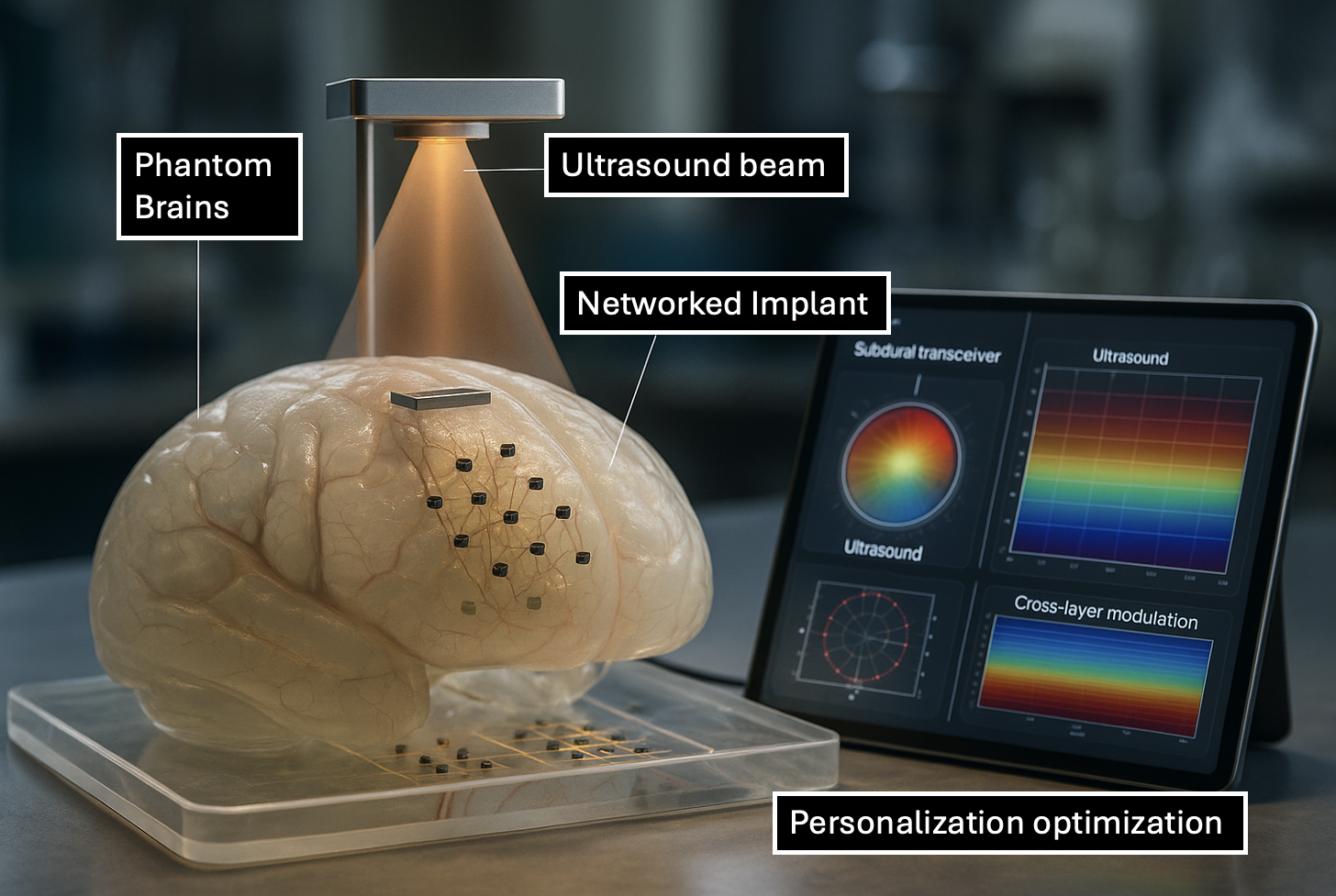Programmable neural computation
We develop living substrates that compute. Bioprinted neuronal cultures and glial networks are engineered to exhibit memory, logic, and adaptive response. Through closed-loop AI control and multielectrode interrogation, we stabilise and modulate dynamics to explore embodied intelligence in vitro.







